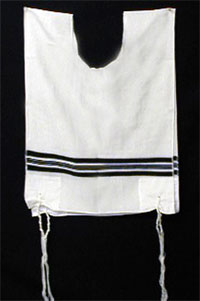Parasha Shelach: Numbers 13:01-15:41
Jewish Renewal www.jewishrenewal.info
Jewish Spiritual Renewal http://rabbiarthursegal.blogspot.com
Jewish Spirituality
Eco Judaism
facebook.com/RabbiArthurSegalJewishSpiritualRenewal
Hilton Head Island, SC, Bluffton, SC, Savannah, GA
Via Shamash Org on-line class service
Jewish Renewal www.jewishrenewal.info
Jewish Spiritual Renewal
Jewish Spirituality
Eco Judaism
Hilton Head Island, SC, Bluffton, SC, Savannah, GA
"You've Got Marty Feldman Eyes"
My apologies to songstress Kim Carnes and her hit "Bette Davis Eyes." I hope you remember the funny actor of blessed memory, Marty Feldman. He played Igor in Mel Brooks's Young Frankenstein. Marty had those bulging buggy eyes, which I will weave into this D'var Torah later on.
Parasha Shelach gets it name from the Hebrew words with which it begins. "Send forth (shelach) men, if you please, and let them spy out the
There are some very subtle wordings in this portion that need to be parsed in order to understand the deeper meaning. A first hint is given in the word following shelach. This word is "lecha." It literally means "for yourself." God gave Moses permission to send spies if Moses needed reassurance. The word used for the spies is "regelem." Regel is a foot and the word regelem literally means "walkers." The Hebrew word, "yeturu," is used to mean "to spy." It is from the root word "tur," which means, "to explore." It is used 12 times in this parasha alone, yet only ten times in the rest of the entire Torah. The regelem's orders are to look (u'reitem) at the land. One of the spies is Hosea bin Nun. He is later given the name Joshua by Moses by adding the letter Yud.
Note the Hebrew "bin" for "son of" instead of the usual "ben." Nachmanides of 13th century
Here is the scenario. Moses and the people have left
So what happened when the spies returned? Ten of them reported to Moses the people (Num. 13:25) that the land flows with milk and honey. They even brought back fruit samples. Then the Torah uses another word, "ahfaht." This word means "but." It is a qualifier. They negate the positive words about the land with this but.
The spies related stories of giants, fortresses, and a strong unconquerable people occupying the land. They saw many dead people and said the land "devours its inhabitants." (Num. 13:32). They concluded their report with, "We were like grasshoppers in our eyes, and so we were in their eyes." (Num. 13:33). Please note that they said in our eyes.
Caleb and Joshua are the two of the twelve spies that give good reports. But the other ten have rallied the people into a frenzy. There is actually a national hysteria. The Torah reports that the "entire assembly" (Num. 14:01) wished they had died in
I would like to point out that the authors of the Torah blamed the previous parasha's insurrection on the "mixed multitude riff raff" that followed the Israelites. But here the Talmud takes the words of the Torah (entire assembly) and says it was just two men, Dason and Aviram, who wanted to dump Moses and return to
As we can see, this mission was doomed to failure before it began. Moses would have been better off not sending spies at all. God told Moses he could send spies if he needed to do this for himself. Moses, of all people, should have trusted God with blind faith. The 19th century Rabbi Zvi Kalisher writes that Moses sent spies hoping they would come back with a report about the strength of the Canaanites, so that when Israel conquered them, they would realize another miracle of God. Rashi, in discussing Deut. 1:21-23, says that the people forced Moses to send spies. If he did not do so, they would have thought he has hiding something. It is like one asking to test drive a donkey before buying it and being told no. If one is told yes, please even take the donkey up a big hill and down a deep valley, one gets confidence in his purchase and may not even want to test the animal at this point.
When the spies walked the land, they saw many funeral processions. They assumed that this was a violent land. The Midrash says that God sent a small plague into
Rabbi Elya Bloch of the 20th century wrote that when one's intentions are bad, nothing can persuade him of the truth. Eight spies carried the giant grapes, one carried the pomegranates and one carried the figs. Caleb and Joshua, a Midrash teaches, did not carry back these fruits, as they knew they would be used to demonstrate negativity.
On another interesting note, the Talmudic rabbis say that the Torah says there are three ways to acquire land: payment, deed or chazakah. Chazakah means performing an action that demonstrates ownership, such as harvesting fruits. The rabbis state that when Moses asks the spies to bring back fruits (Num. 13:20) he was asking them to legally, according to Jewish law, establish ownership of the land. The question as to why the negative spies, who did not believe they could conquer the land, harvested fruits, and the two positive spies, who thought they could conquer the land, did not harvest fruits is left unasked and unanswered. The Talmud Bavli in Tractate Sotah 35A discusses whether the spies actually overheard giants call them grasshoppers. The rabbis say that the spies said the Canaanites said, "There are people-ants crawling around in the fields." The rabbis may be missing a good lesson of psychology here. It is not really important what the Canaanites thought. What we need to focus on is how the spies thought of themselves. They obviously were in a trap of spiritual self-devaluation. They not only lacked faith in God, they lacked self-esteem. They saw themselves as grasshoppers. They had Marty Feldman's bug eyes.
Rabbi Yaakov Kamensky of 20th century
In her poem, Shelach, poetess Chana Andler wrote:
Twelve spies went out
To view the Promised Land.
Only two returned.
The rest were lost along the way,
Prey to doubt and indecision,
The certainty
That they were little men,
Too small to face the future
God might ask.
Their bones were left
Behind in the desert
To bleach away their fear.
A stern reminder
Of the consequences
Of little faith.
How often do we
Play out this drama,
Measuring what can be
By what has been before?
We see the front
That others wear,
The illusion of perfection,
And judge ourselves
Inadequate to the task,
Incapable of achieving
Such heights of glory.
They are giants
To our children's eyes,
Puffed with virtues
We cannot possess.
But what in truth
Was ever asked of us
That we could not survive
Were we only
To hold our ground
And let the Spirit
Carry us along?
It's folly to gauge our strength
Against the gods and monsters
We create to undermine our dreams.
To judge our soul's potential
By the small amount
We can perceive.
Twelve spies went out
To view the Promised Land,
But only two returned.
May we find our way out
And back again,
Untouched
By what we think
We see.
Rashi writes, "The heart and the eyes are the spies of the body, that is, they lead a person to transgress: the eyes see, the heart covets, and the body transgresses." Or, as King Solomon is credited with writing in Ecclesiastes 2:14, "The wise man's eyes are in his head, and the fool walks in darkness." Self-image is how we see ourselves. It is also how we think others see us. Self-esteem is our internal feeling and evaluation of ourselves based on our perceived self-image. Once we get some negative statements in our head that we may have learned in our childhood, we do not physically need to hear them again. The tapes become hardwired in our minds. Again and again those negative statements unconsciously repeat. It is like having a constant heckler in your mind. Psychologists say that one needs about 20 positive statements about ourselves to offset a negative personal statement.
The best way of offsetting negative self-talk is to remind yourself that you have the internal resources to handle whatever challenges life gives you. When one feels powerless and sees others as giants, one will develop low self-esteem. Instead of dealing with situations directly and assertively, one will use passive-aggressive behaviors. The spies did this. Instead of reporting directly to their boss, Moses, they went directly to the people with their bad report.
When one has good self-esteem combined with a faith in God, one acts assertively and with kindness. One is not passive, or aggressive, or acts passive-aggressively. One does not blame others for their problems but takes responsibility for them. There is no room for apathy or pessimism, and one's life has vision, focus, commitment and self-control. One trusts one's self and has a realistic trust of others. One has the confidence to choose friends who are safe and who will not injure or exploit. One learns to be self-nurturing and not looking for others to be parents. One is autonomous and has a strong sense of identity. And one relates closely and intimately with others and yet knows when to limit closeness.
Positive self-esteem allows one to own up to one's failures, fears and weaknesses. It is not a cocksure attitude that one cannot do wrong. Conversely, good self-esteem would enable one to be able to admit wrongdoing, apologize and do teshuvah. Self-esteem requires continual monitoring and feeding one's head with good statements. The rabbis tell of one of their elders describing his inner struggle. He said, "Inside of me there are two dogs. One of the dogs is mean and evil. The other dog is good. The mean dog fights with the good dog all the time." When he was asked which dog wins, he reflected for a moment and replied, "The one I feed the most."
We are all regelem. We are all walking and journeying through life. All of us will have a journey that is not balanced or straight. King David writes in Psalm 73:02, "My feet nearly faltered, my steps were almost washed away!" The Rabbi Judah the Prince (ha Nasi), the redactor of the Mishna circa 200 C.E., in Pirkei Avot (2:01) reminds us that the right way to walk is one that is in a way that brings honor. If we try to keep to this path in whatever situation we find ourselves, no matter how hard that may seem at the time, our esteem for ourselves will always be high.
The Torah recognizes this. It actually developed a physical "string around the finger" to remind us to think positive thoughts. This idea was commanded to us after the sin of the spies. I am referring to the mitzvah of Tzitzit.
Tzitzit are fringes. It is from the root word that means to peer at something intently. In Numbers 15:39 we are told to wear them on our four-cornered garments so we "will not go astray (saturu) after your hearts and eyes." The 12 men were asked to spy (latur). The root words are the same. We are asked to see the tzitzit (u'reitem oso), and the spies were sent to see the land (u'reitem et ha Aretz).
There is an interesting twist to the mitzvah of wearing tzitzit. It is optional! Numbers 15:38 commands us to put tzitzit on the four corners of a four-cornered garment. There is no rule commanding us to wear a four-cornered garment. Traditional Jews have taken it upon themselves to wear a four-cornered garment so that they can fulfill the mitzvah of wearing tzitzit. Although wearing tzitzit is optional, there are 12 chapters in the Shulchan Aruch, the Set Table of Jewish law, on the rules of tzitzit.
The sending of the spies and the wearing of tzitzit were both optional to us. How we look at things and the conclusions we draw from our spying eyes has been always left up to us as individuals. We are capable of seeing very far, writes Rabbi Frand, but only if we open up our eyes and be honest enough to see things as they really are.
Rabbi Gunther Plaut translates the last half of the verse of Numbers 15:39 as "so that you do not follow your heart and eyes in your lustful urge." The Art Scroll TaNaK translates it as "not explore after your heart and after your eyes after which you stray." The Kings James Bible reads, "that ye seek not after your own heart and your own eyes, after which ye use to go a whoring." While I can usually find mistranslation in the King James Version, it has in this case the best rendering of this passage. The Hebrew word "zonem" is from the Hebrew word for harlot, zonah.
Prostitutes are paid, or so I am told, to tell men what they want to hear. We must not prostitute our eyes into lying to ourselves to inflate our egos and let us be in denial about situations. Nor should we allow them to deflate our egos so that our self-esteem is lowered. We do not want to live our lives unfulfilled and waste 40 years of it wandering through a desert of irrational fears.
An honest prostitute is the heroine of this Haftarah from Joshua 2:1-24. Joshua sends out two spies 39 years after he was one of the original 12 spies. The two seek refuge in the "bait eshah zonah ushema Rahchav" (the house of women of a harlot named Rahab). She hides and saves the two spies from the King of Jericho's soldiers. They promised her that when the Israelites invade
Unlike the ten spies 39 years before, Rahab had faith in God's plan for the Israelites. She had heard tales of the Israelites' God helping to defeat their enemies. She knew about the Jews at
Joshua kept his spies' word and after the battle of
Thirty-nine years after the original spies went out, Joshua was to lead the now-matured Israelites with a positive attitude into
Shabbat Shalom:
Rabbi Arthur Segal
Jewish Renewal www.jewishrenewal.info
Jewish Spiritual Renewal http://rabbiarthursegal.blogspot.com
Jewish Spirituality
Eco Judaism
facebook.com/RabbiArthurSegalJewishSpiritualRenewal
Hilton Head Island, SC, Bluffton, SC, Savannah, GA
Via Shamash Org on-line class service
Jewish Renewal www.jewishrenewal.info
Jewish Spiritual Renewal
Jewish Spirituality
Eco Judaism
Hilton Head Island, SC, Bluffton, SC, Savannah, GA
Join Shamash's Groups on Facebook and LinkedIn.
For other options go to: http://listserv.SHAMASH.ORG/








Jewish Renewal www.jewishrenewal.info
Jewish Spiritual Renewal http://rabbiarthursegal.blogspot.com
Jewish Spirituality
Eco Judaism
facebook.com/RabbiArthurSegalJewishSpiritualRenewal
Hilton Head Island, SC, Bluffton, SC, Savannah, GA
Jewish Renewal www.jewishrenewal.info
Jewish Spiritual Renewal http://rabbiarthursegal.blogspot.com
Jewish Spirituality
Eco Judaism
facebook.com/RabbiArthurSegalJewishSpiritualRenewal
Hilton Head Island, SC, Bluffton, SC, Savannah, GA









